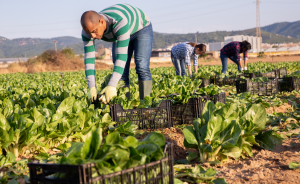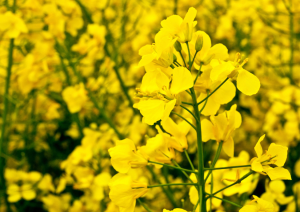Researchers from China National Rice Research Institute and partners have identified that the Trichome Birefringence (TBR) gene allows plants to handle extra zinc in the soil. Zinc is an important micronutrient that can become toxic to living cells when present in excess. Therefore, plants have developed mechanisms that will help them tolerate zinc toxicity. Plants absorb zinc on their cell walls through a process called pectin methylesterification. In this process, the structure of the cell wall's pectin molecules were altered to store additional zinc.
The International Service for the Acquisition of Agri-biotech Applications, Inc. (ISAAA Inc.) and the Malaysian Biotechnology Information Centre (MABIC) invite agribiotechnology stakeholders to join the 7th Asian Short Course on Agribiotechnology, Biosafety Regulation, and Communication (ASCA7). This intensive 5-day program, to be held on September 2-6, 2024 at the Maruay Garden Hotel in Bangkok, Thailand, is co-hosted by Thailand's Department of Agriculture and Biotechnology Alliance Association.
The Food and Agriculture Organization of the United Nations (FAO) is set to release the 2024 State of Food Security and Nutrition in the World (SOFI) during the G20 Global Alliance against Hunger and Poverty Task Force Ministerial Meeting on July 24, 2024. The annual report highlights the global progress in the efforts to end hunger, attain food security, and enhance nutrition.
The Ministry of Agriculture, Forestry, and Fisheries (MAFF) in Japan has released new data on their regular annual surveys and detailed reports on various genetically modified (GM) crops. Japan has been monitoring GM crop cultivation sites to ensure no cross-contamination with non-GM crops of the same species within the area. Their newly released data addresses public concerns about the “accidental spillage” of GM crops.
The Australian Gene Technology Regulator (OGTR) is inviting comments on an application from the Commonwealth Scientific and Industrial Research Organisation (CSIRO) to conduct a field trial of canola genetically modified for increased abiotic stress tolerance. The trial is proposed to take place at up to three sites with a total area of up to six hectares per year over six years. The field trial sites will be in New South Wales and South Australia. The GM plants grown in this field trial would not be used for human food or animal feed.
The International Service for the Acquisition of Agri-biotech Applications, Inc. (ISAAA Inc.) and the Malaysian Biotechnology Information Centre (MABIC) extend the early bird registrations for the 7th Asian Short Course on Agribiotechnology, Biosafety Regulation, and Communication (ASCA7) until July 22, 2024. This intensive 5-day program, to be held on September 2-6, 2024 at the Maruay Garden Hotel in Bangkok, Thailand, is co-hosted by Thailand's Department of Agriculture and Biotechnology Alliance Association.
The world rice market has seen ups and downs during the first few years of this decade. While world wheat and maize prices were on the upswing, more than doubling from August 2020 to May 2022 in the wake of the war in Ukraine, world rice prices were more stable. The Food and Agriculture Organization (FAO) indica rice price index in August 2022 was only 4% above its level in January 2020, the beginning of the COVID-19 pandemic. However, international rice prices have risen substantially since August 2022, with the FAO indica rice price index increasing by 45% between that time and its peak in January 2024.
An initiative to build resilient agrifood systems grounded in diverse, nutritious, and climate-adapted crops grown in healthy soils, today marked another milestone through a new partnership between the Food and Agriculture Organization of the United Nations (FAO) and CIMMYT, a CGIAR Research Center. FAO and CIMMYT signed a Memorandum of Understanding establishing a Partnership for the Vision for Adapted Crops and Soils (VACS) initiative. The joint Partnership will play a pivotal role leading efforts to coordinate, grow, and strengthen the VACS movement across a wide range of public and private stakeholders.
The Food and Agriculture Organization of the United Nations (FAO), as part of the United Nations Emergency Technical Teams (UNETT), is deployed in the areas affected by Hurricane Beryl in the Caribbean to advance rapid needs assessment and preparation of proposals, under the leadership of the Caribbean Disaster Emergency Management Agency (CDEMA), to restore production and livelihoods.
The CGIAR Initiative on Market Intelligence unveiled the Global Market Intelligence Platform (GloMIP), the next game changer in genetic innovation and impact programs across the world, at a virtual event held last June 7. GloMIP is the global public platform for sharing market intelligence to inform the targeting, design, and delivery of products and technology and guide R&D investment decisions by the CGIAR and its network of partners and investors. The platform aims to harness the best market intelligence in building cases for investments across the five CGIAR Impact Areas.


 Curently online :
Curently online :
 Total visitors :
Total visitors :









